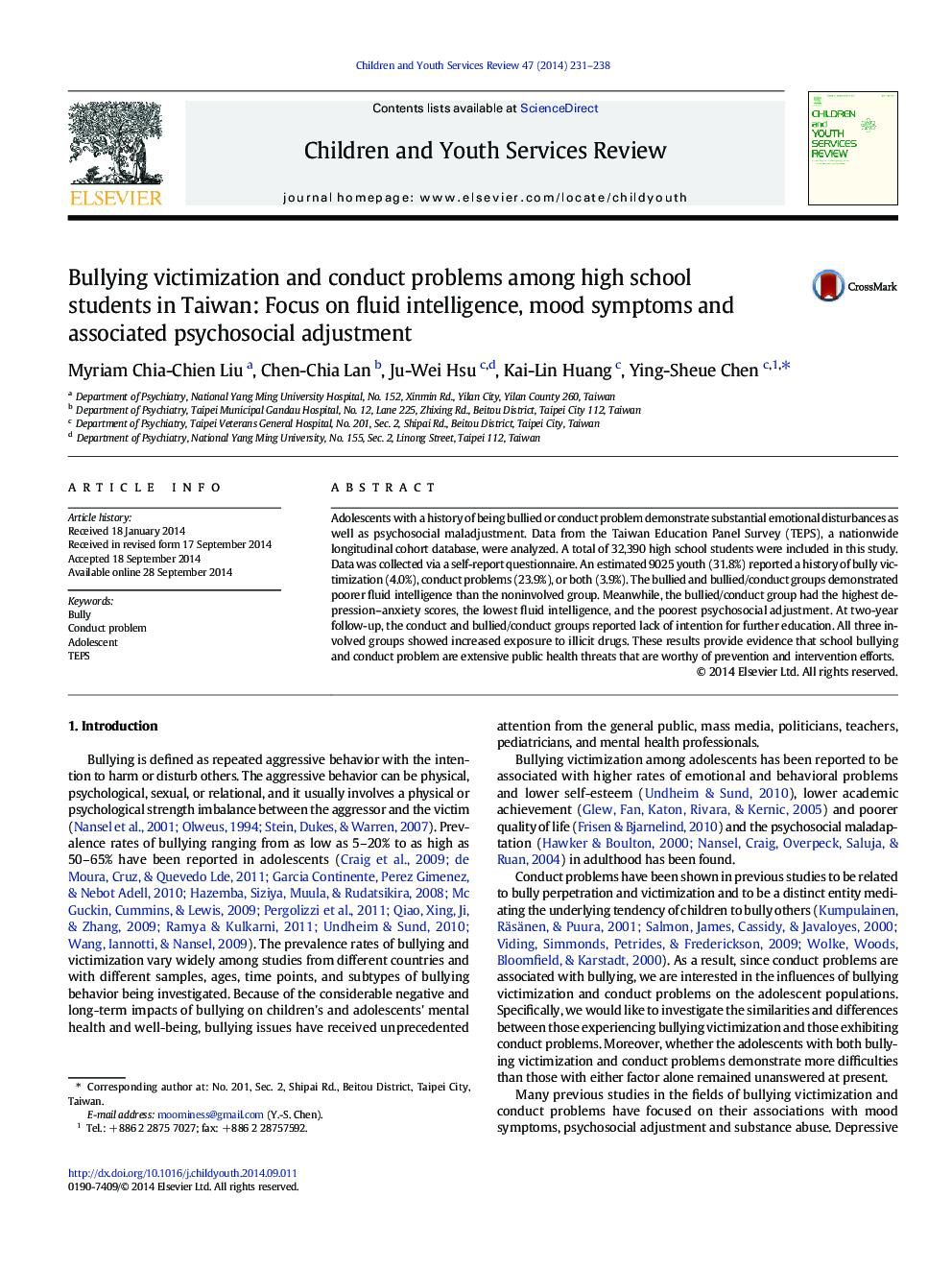| Article ID | Journal | Published Year | Pages | File Type |
|---|---|---|---|---|
| 10311527 | Children and Youth Services Review | 2014 | 8 Pages |
Abstract
Adolescents with a history of being bullied or conduct problem demonstrate substantial emotional disturbances as well as psychosocial maladjustment. Data from the Taiwan Education Panel Survey (TEPS), a nationwide longitudinal cohort database, were analyzed. A total of 32,390 high school students were included in this study. Data was collected via a self-report questionnaire. An estimated 9025 youth (31.8%) reported a history of bully victimization (4.0%), conduct problems (23.9%), or both (3.9%). The bullied and bullied/conduct groups demonstrated poorer fluid intelligence than the noninvolved group. Meanwhile, the bullied/conduct group had the highest depression-anxiety scores, the lowest fluid intelligence, and the poorest psychosocial adjustment. At two-year follow-up, the conduct and bullied/conduct groups reported lack of intention for further education. All three involved groups showed increased exposure to illicit drugs. These results provide evidence that school bullying and conduct problem are extensive public health threats that are worthy of prevention and intervention efforts.
Keywords
Related Topics
Health Sciences
Medicine and Dentistry
Perinatology, Pediatrics and Child Health
Authors
Myriam Chia-Chien Liu, Chen-Chia Lan, Ju-Wei Hsu, Kai-Lin Huang, Ying-Sheue Chen,
